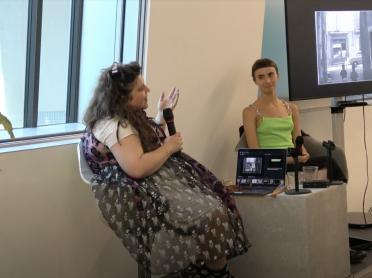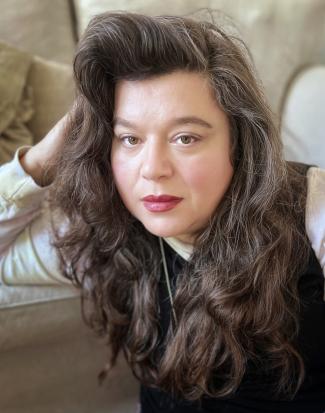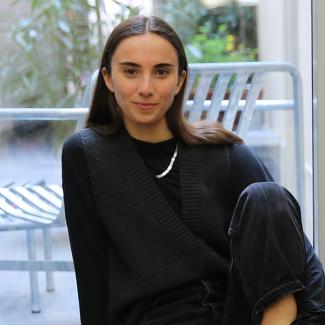Dérives with Tai Shani
Sunday 24 Jul 2022 from 4pm to 5:30pm
Free on booking
Talk in english

A gathering at the heart of the sources of the artist co-winner of the Turner Prize (2019) whose works mix dreamed narratives with uninhibited feminist ecologies.
Oscillating between theoretical concepts and visceral details, Shani’s texts attempt to create poetic coordinates in order to cultivate fragmentary cosmologies of marginalised nonsovereignty. Taking cues from both mournful and undead histories of reproductive labour, illness and solidarity, her work is invested in recovering feminised aesthetic modes – such as the floral, the trippy or the gothic – in a register of utopian militancy. In this vein, the epic, in both its literary long-form and excessive affect, often shapes Shani’s approach: Her long-term projects work through historical and mythical narratives, such as Christine de Pizan’s allegorical city of women or the social history of psychedelic ergot poisoning. Extending into divergent formats and collaborations. Shani’s projects examine desire in its (infra-)structural dimension, exploring a realism that materially fantasises against the patriarchal racial capitalist present. Tai Shani is the joint 2019 Turner Prize winner together with Lawrence Abu Hamdan, Helen Cammock and Oscar Murillo. Her work has been shown extensively in Britain and internationally.
In 2019 Tai Shani was a Max Mara prize nominee. Her work has been shown at British Art Show 09, Touring (2021), CentroCentro, Madrid (2019-20), Turner Contemporary, UK (2019); Grazer Kunstverein, Austria (2019); Nottingham Contemporary, U.K. (2019); Fondazione Sandretto Re Rebaudengo, Italy (2019); Glasgow International, UK (2018); Tenstakonsthall, Sweden (2017), Wysing Arts Centre, UK (2017); Serpentine Galleries, London (2016); Tate, London (2016); and Irish Museum of Modern Art, Dublin (2016).
Madeleine received her Bachelor of Arts from Princeton University before pursuing a Masters in « Media, Arts and Creation » at HEC Paris and a Master 2 in gender and performance studies at the EHESS. There, she led an arts-based research project with the nonprofit Women Safe, where she continues to facilitate a creative writing and theatre workshop. Madeleine is currently completing her PhD at the EHESS ; her dissertation research examines contemporary methods for devising performance in France.
Her most recent writing can be found in CURA., OnCurating, SwitchOn Paper, and EarthKeepingEarthShaking. She has curated two group shows : Spine at GIANNI MANHATTAN as part of Curated by (Vienna, 2024), as well as Scabs at the Mécènes du Sud (Montpellier, 2023). Madeleine pursues her training in contemporary dance.

